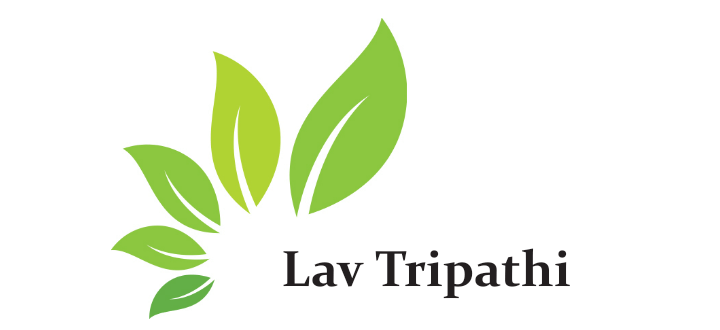Respiratory Syncytial Virus (RSV) Symptoms – RSV stands for Respiratory Syncytial Virus, which is a common respiratory virus that can infect people of all ages, but it is most serious in young children, older adults, and people with weakened immune systems.
RSV infection can cause mild cold-like symptoms, such as a runny nose, cough, and fever, but it can also lead to more severe respiratory illnesses, such as bronchiolitis and pneumonia.
RSV is spread through respiratory secretions, such as saliva or mucus, from infected people when they cough or sneeze.
The virus can also survive on surfaces for several hours, so people can become infected by touching contaminated objects and then touching their mouth or nose.
There is no specific treatment for RSV infection, but supportive care, such as rest, fluids, and fever control, can help manage the symptoms.
In severe cases, hospitalization may be necessary.
There is also a vaccine available for some high-risk groups, such as premature infants and children with certain medical conditions.
How Easily is Respiratory Syncytial Virus (RSV) Transmitted
RSV is primarily spread through contact with respiratory secretions from an infected person.
This can happen when an infected person coughs or sneezes, sending tiny droplets containing the virus into the air, which can then be inhaled by others nearby.
RSV can also spread through direct contact with the virus on surfaces that an infected person has touched, such as doorknobs, countertops, or toys.
RSV is most contagious during the first few days of infection when symptoms are present, but it can be spread by infected individuals for several weeks, even after their symptoms have resolved.
Infants and young children are particularly susceptible to RSV and can easily spread the virus in daycare settings or other close-contact environments.
To prevent the spread of RSV, it’s important to practice good hygiene, such as washing your hands frequently and covering your mouth and nose when coughing or sneezing.
It’s also important to avoid close contact with people who are sick and to stay home if you’re feeling unwell.
Respiratory Syncytial Virus (RSV) Symptoms in Adults
In adults, respiratory syncytial virus (RSV) infections often cause mild to moderate cold-like symptoms. The symptoms of RSV in adults can include:
Runny or stuffy nose
Cough
Sore throat
Sneezing
Mild headache
Low-grade fever
Body aches
Fatigue
Symptoms of RSV in adults usually develop within 4 to 6 days after exposure to the virus and can last for 1 to 2 weeks.
In some cases, RSV infections can lead to more severe respiratory illness in adults with weakened immune systems, underlying medical conditions, or advanced age.
These severe symptoms can include shortness of breath, wheezing, chest pain, and high fever.
If you are experiencing symptoms of RSV or any respiratory illness, it is important to stay home, rest, and avoid contact with others to prevent the spread of infection.
If you have severe symptoms, such as difficulty breathing or chest pain, seek medical attention right away.
Respiratory Syncytial Virus (RSV) Symptoms in Infants
Respiratory syncytial virus (RSV) can cause a wide range of symptoms in infants, ranging from mild to severe. The symptoms of RSV in infants may include:
Runny or stuffy nose
Cough
Sneezing
Fever
Irritability
Decreased appetite
Difficulty breathing or rapid breathing
Wheezing
Cyanosis (blue tint to the skin, lips, or fingernails)
Apnea (periods of stopped breathing)
Infants who are at higher risk of developing severe RSV disease include premature infants, infants with chronic lung disease, infants with congenital heart disease, and infants with weakened immune systems.
These infants may experience more severe symptoms, including rapid breathing, severe cough, and difficulty feeding.
If your infant is showing any signs of respiratory illness, it is important to contact your healthcare provider right away.
Your healthcare provider may recommend monitoring your infant’s symptoms closely or may recommend hospitalization for more severe symptoms.
In some cases, supplemental oxygen or other treatments may be necessary to help your infant breathe more easily.
Respiratory Syncytial Virus (RSV) Treatment for Adults
There is no specific treatment for respiratory syncytial virus (RSV) infection in adults.
Most adults with RSV infections will recover on their own within 1–2 weeks, and treatment typically focuses on relieving symptoms and supporting the immune system.
Treatment options for RSV in adults may include:
Over-the-counter pain relievers such as acetaminophen or ibuprofen to reduce fever and alleviate body aches.
Nasal saline drops or sprays to relieve nasal congestion.
Cough suppressants or expectorants to relieve coughing.
Drinking plenty of fluids to prevent dehydration and keep the airways moist.
Rest and avoiding physical exertion to allow the body to fight off the infection.
In some cases, your healthcare provider may prescribe antiviral medications such as ribavirin, but this is usually reserved for individuals with severe RSV disease or those with compromised immune systems.
If you have severe symptoms, such as difficulty breathing or chest pain, seek medical attention right away.
In severe cases, hospitalization may be necessary to provide supplemental oxygen, fluids, or other supportive care.
It’s important to follow your healthcare provider’s advice and recommendations for treatment of RSV.
Respiratory Syncytial Virus (RSV) Treatment in Infants
Treatment for respiratory syncytial virus (RSV) in infants depends on the severity of the infection.
In most cases, treatment for RSV in infants is supportive, meaning that the goal is to relieve symptoms and prevent complications.
Treatment options for RSV in infants may include:
Frequent suctioning of the nose and mouth to remove mucus and make it easier for the infant to breathe.
Providing plenty of fluids to prevent dehydration and keep the airways moist.
Oxygen therapy to help the infant breathe more easily if they are having difficulty.
In severe cases, hospitalization may be necessary to provide supportive care, such as mechanical ventilation or intravenous fluids.
It’s important to contact your healthcare provider if your infant is showing signs of respiratory illness, particularly if they are under three months old, have difficulty breathing, or are experiencing a high fever.
Your healthcare provider can recommend the best course of treatment for your infant’s individual needs.
How Long Does Respiratory Syncytial Virus (RSV) Usually Last
The duration of respiratory syncytial virus (RSV) infection can vary depending on the severity of the infection and the individual’s overall health.
In general, most cases of RSV infection in otherwise healthy individuals will resolve within 1 to 2 weeks.
Infants, young children, and older adults or those with underlying medical conditions may experience a longer duration of symptoms and are at greater risk of developing more severe disease.
In some cases, particularly in infants, the symptoms of RSV infection may persist for several weeks.
It’s important to note that even after the symptoms of RSV have resolved, individuals can remain contagious for several days to weeks.
Infants and young children, in particular, may continue to shed the virus for up to four weeks after symptoms have resolved.
If you or your child is experiencing symptoms of RSV, it’s important to stay home, rest, and avoid contact with others to prevent the spread of infection.
Contact your healthcare provider if you or your child has severe symptoms or if symptoms persist for an extended period of time.
Precautions for Respiratory Syncytial Virus (RSV) Patients
Here are some precautions for RSV patients
Stay home: If you or your child has RSV, it is important to stay home until the symptoms subside.
This will help prevent the spread of the virus to others, especially to those who are at high risk of severe RSV infections.
Wash hands frequently: Regularly washing hands with soap and water for at least 20 seconds can help prevent the spread of RSV.
This is especially important after coughing, sneezing, or blowing your nose.
Cover your cough or sneeze: Cover your nose and mouth with a tissue when you cough or sneeze, and dispose of the tissue immediately.
If you don’t have a tissue, cough or sneeze into your elbow, not your hands.
Avoid close contact with others: Limit close contact with others, especially those who are at high risk of severe RSV infections, such as infants, young children, and older adults.
Clean and disinfect surfaces: Clean and disinfect frequently touched surfaces, such as doorknobs, light switches, and countertops, to help prevent the spread of RSV.
Use a humidifier: Using a cool-mist humidifier can help ease congestion and cough associated with RSV.
Be sure to clean the humidifier regularly to prevent the growth of bacteria and mold.
Seek medical attention if necessary: If you or your child experiences severe symptoms of RSV, such as difficulty breathing, wheezing, or high fever, seek medical attention immediately.
Respiratory Syncytial Virus (RSV) Precautions for Babies
RSV virus, can be particularly dangerous for babies, especially those younger than six months old. Here are some specific precautions for babies with RSV:
Keep babies away from sick people: RSV is highly contagious, and babies can easily catch it from other sick people.
Avoid taking your baby to crowded places, especially during RSV season, which usually occurs in the fall and winter months.
Wash hands frequently: Regularly wash your hands with soap and water for at least 20 seconds before handling your baby, especially if you have been in contact with someone who is sick.
Avoid sharing items: Do not share items such as pacifiers, bottles, or utensils with your baby, as this can increase the risk of spreading RSV.
Keep the baby’s environment clean: Clean and disinfect frequently touched surfaces in your baby’s environment, such as toys, doorknobs, and light switches, to reduce the risk of infection.
Limit visitors: Limit the number of visitors to your home, especially during RSV season, to reduce the risk of your baby catching the virus.
Breastfeed if possible: Breastfeeding can help protect your baby from RSV and other respiratory infections, as breast milk contains antibodies that can fight off viruses and bacteria.
Use a cool-mist humidifier: Using a cool-mist humidifier can help ease your baby’s congestion and cough.
Be sure to clean the humidifier regularly to prevent the growth of bacteria and mold.
If your baby shows signs of severe RSV infection, such as difficulty breathing, wheezing, or a high fever, seek medical attention immediately.
👇👇👇
10 Surprising Health Benefits of Ginger You Need to Know





